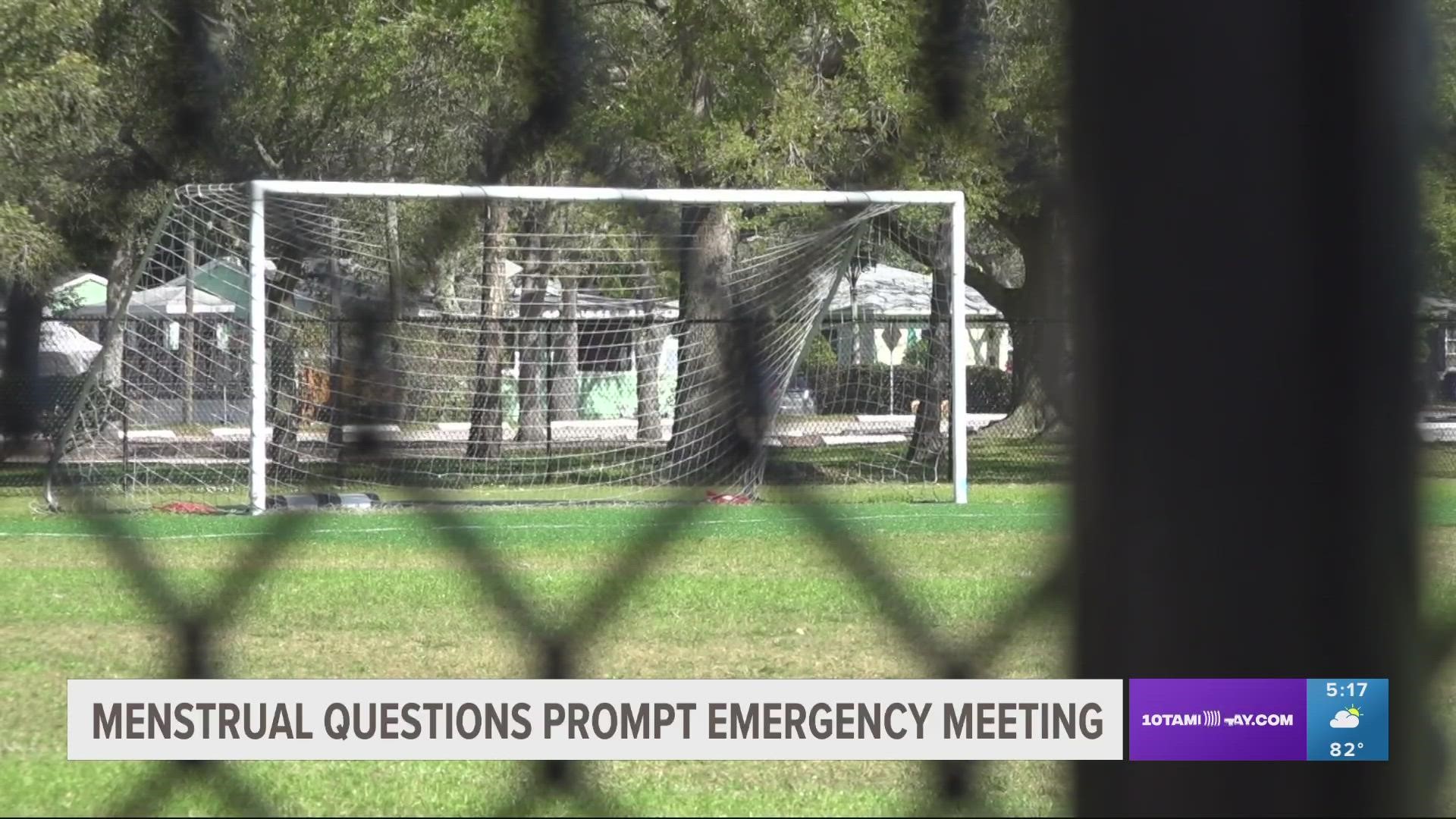ORLANDO, Fla. — Facing blowback, the director of Florida’s high school sports governing body is backing away from using an eligibility form that requires female athletes to disclose their menstrual history in order to compete.
The decision to not have high school female athletes to share their menstrual history to schools may depend on an emergency meeting held Thursday morning by the Florida High School Athletic Association.
Instead, the executive director of the FHSAA is recommending that most personal information revealed on medical history forms stay at the doctor’s office and not be stored at school.
The four-page form would remove questions that force student-athletes to share details about their menstruation cycles in order to participate in sports.
"This recommendation provides pertinent medical history to the qualified health care practitioner and gives schools the medical authorization necessary for allowing athletic participation, while protecting the privacy of the student-athlete," wrote its executive director in the recommendation.
Under the new recommendation, answers to additional questions about mental health, alcohol and drug use, and family health history would stay in the offices of the healthcare practitioner who conducted the medical screening.
The FHSAA faced scrutiny with some parents calling it an invasion of privacy. Others also criticized the board of directors make up for such a decision.
The board is made up of fourteen men and two women.
"What may not seem like a big deal to them really brings daughters, teenagers to tears," Jenn Meale Poggi said. "Conversations among them should remain with the child, the parents, and the physicians."
She organized the "Privacy. Period!" campaign garnering more than 241 signatures as of Wednesday evening.
While doctors 10 Tampa Bay spoke with agree medical clearance forms are necessary, mandatory reporting of one's menstrual history is not.
The recommendations from several institutions did not necessarily entail that the entire medical history is kept at the school, Dr. Thresia Gambon, president of the Florida Chapter of the American Academy of Pediatrics, said. Rather, it remains with the provider.
"I stand with our recommendations. I think it would be suitable and a good solution, and it would also allow our athletes to hopefully participate," Gambon said.
In the current proposal, only one page of the evaluation form would be kept with the school.
An earlier version of the form, which had mandatory questions about students' menstrual histories, had been recommended by an advisory committee of the association. It “created concerns and questions from parents, school district administrators, school board members and coaches regarding the health privacy of student-athletes," according to the agenda for Thursday's meeting.
“Therefore, this recommendation provides pertinent medical history to the qualified health care practitioner and gives schools the medical authorization necessary for allowing athletic participation, while protecting the privacy of the student-athlete," the agenda item said.
The prior considerations also sparked scrutiny from abortion-rights activists who fear information obtained from mandatory reporting could be used against students.
"I am thrilled that the executive director has come around and seen the light here," said Amy Weintraub, reproductive rights program director with Progress Florida, which is based in St. Petersburg.
The organization collected 1,611 letters through its page in protest of the prior proposal in place, Weintraub said.
Critics have also claimed the mandatory nature is a means to target transgender student-athletes, which a spokesperson for the FHSAA denied.
“There is absolutely no support of the argument that their recommendation is aimed towards addressing an individual group of people,” Ryan Harrison, the association’s spokesperson, said in an email.
Thursday's meeting was being held after a group of Democratic state lawmakers sent a letter this week to John Gerdes, the association's president, calling the reporting requirements in the earlier proposed form “highly invasive." The letter said, “no girl should be forced to disclose her bodily functions to someone who is not her mother, father, caretaker, or physician."
The state lawmakers said they were concerned that, if the schools had the information, a coach or athletic director would be able to get access to it. With the current form, such questions are optional, not mandatory; in the revised form under consideration, they would be scrapped.
“There is absolutely no reason for FHSAA to collect such private information and no reason why the schools need it," the lawmakers said in the letter.

